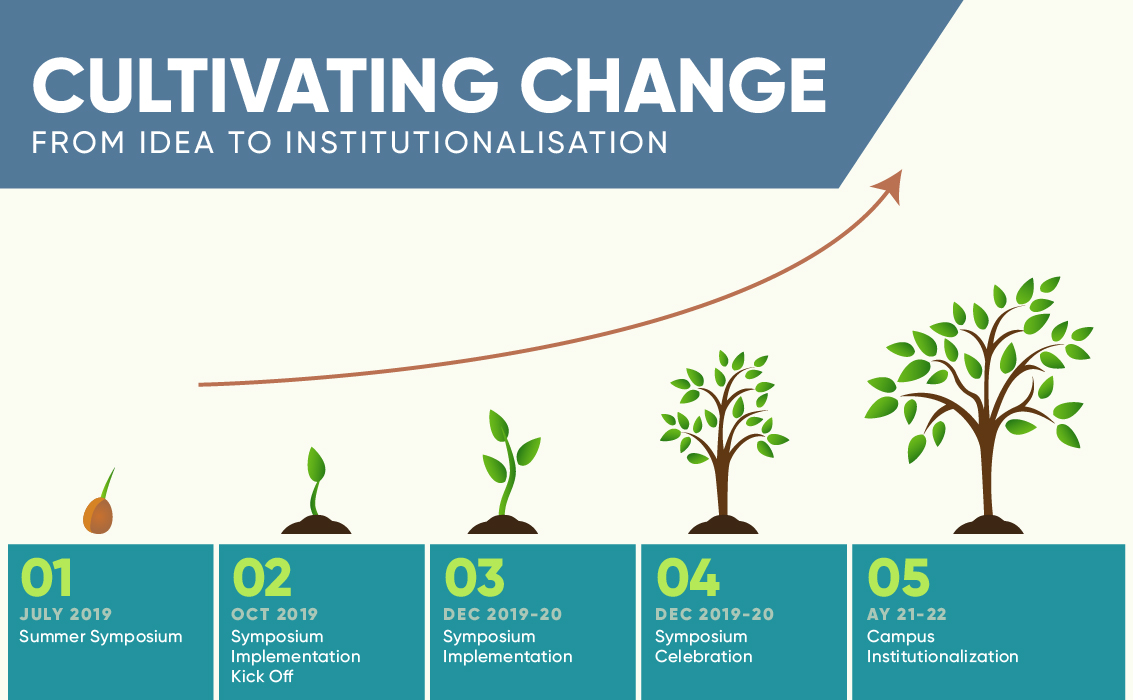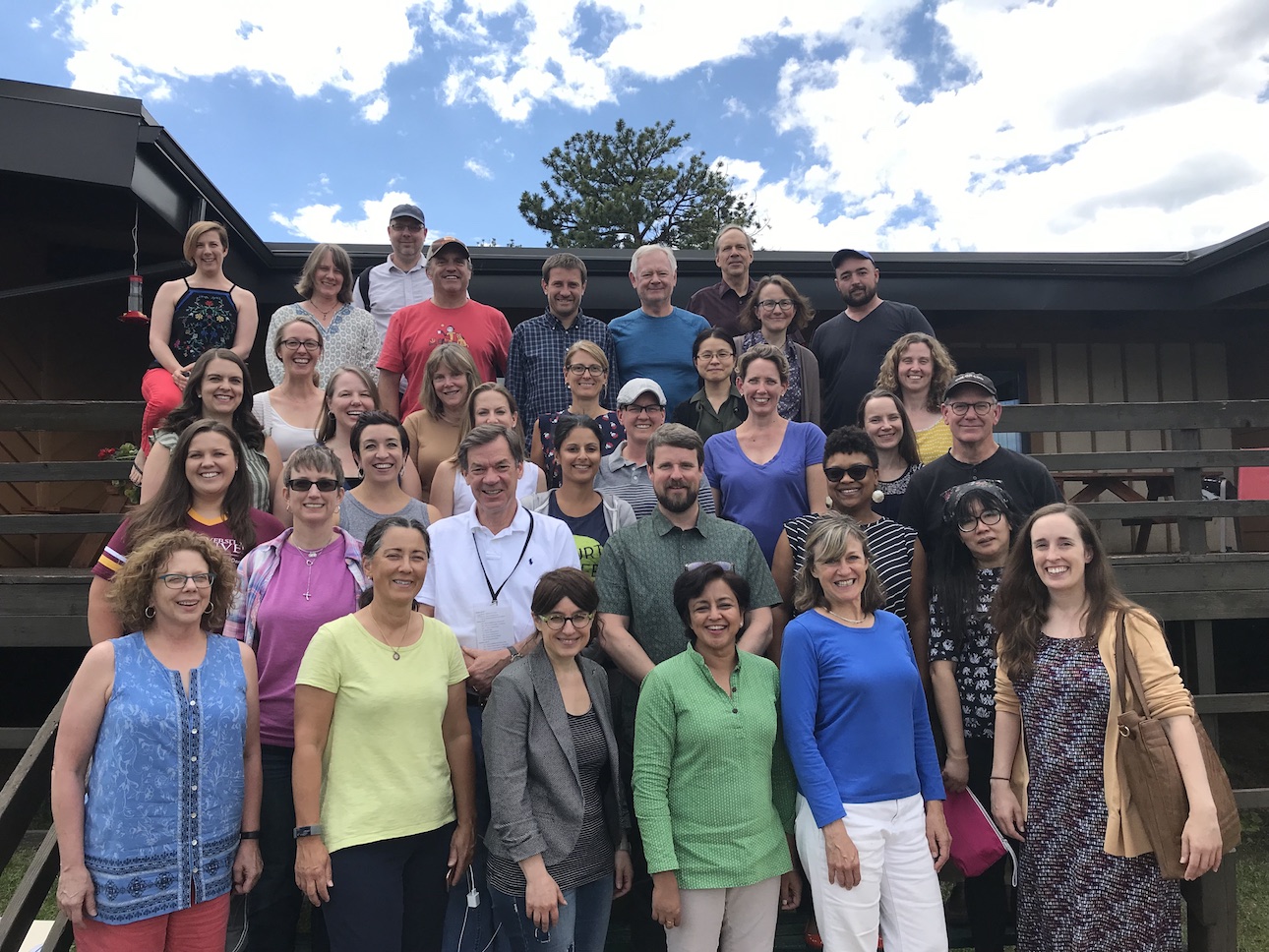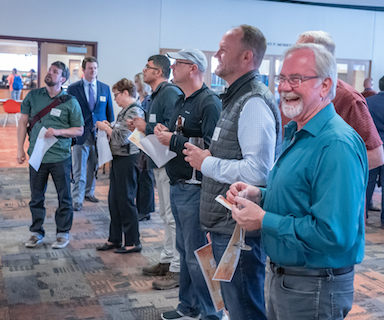By Kate Willink, Vice Provost of Faculty Affairs
If you can, think back to May of 2019. Personally, I can hardly remember what happened last week, much less pre-pandemic. So, if you were a faculty member, chair, or director in spring 2019, here are some things you would not have seen…because they didn’t exist.
- Chair and Director Handbook
- Chair Advisory Board
- University-wide training for Chairs and Directors around DEI
- Conflict-management support
- Mentoring guide for teaching & professional faculty
- Deliberative decision making (DDM) process for facilitating department meetings (and now P&T, as described later in the newsletter)
Thanks to faculty creativity, grassroots change, a shared-governance orientation, an expanding circle of folks leading implementation of these ideas, and the absolute badassery of our faculty, we share the story of a two-year, institutional-change process that has made a substantial difference in the lives of faculty, departments, and chairs and directors across campus.
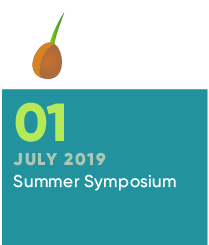 1. Symposium: July 2019
1. Symposium: July 2019
Back in the days when dinosaurs roamed and gathering faculty for a summer retreat in the mountains seemed like a novelty (but not a public-health concern), the Vice Provost for Faculty Affairs and the Faculty Senate hosted a summer symposium: Creating Collaborative Department Cultures and Chairs. Thirty-four faculty from across campus gathered in Florissant, Colorado, for two days of collective problem-solving around issues of shared concern. It was a new kind of opportunity for faculty—one that brought together colleagues from across ranks and disciplines to explore big ideas, possibilities, and opportunities in an off-campus setting.
We gathered with a shared purpose: improving the lives of fellow faculty members. We know that a truly fair and fundamentally just collaborative department culture and climate is among the most important interventions for faculty quality of life.
At the end of two days, faculty groups presented their ideas to Interim Provost Corinne Lengsfeld and suggested implementation strategies for creating collaborative department cultures and climates.
These faculty-generated ideas sprouted seeds of campus climate, culture, and institutional change.
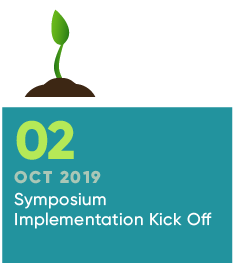 2. Symposium Implementation Kick-Off: October 2019
2. Symposium Implementation Kick-Off: October 2019
In August and September of 2019, the Provost, Senate President, and Vice Provost for Faculty Affairs met to review Symposium proposals and decide which initiatives could blossom in a one-year implementation effort and contribute most to supporting departments and chairs and directors. This resulted in six faculty initiatives designed to implement Symposium ideas.
In October 2019, the Provost and faculty senate co-hosted a reception to share and celebrate the work of Symposium participants, and to invite more colleagues to join the implementation phase. Faculty were invited to express interest in particular implementation efforts. The VPFA also launched a Symposium implementation website to share progress with the campus community and track implementation efforts.
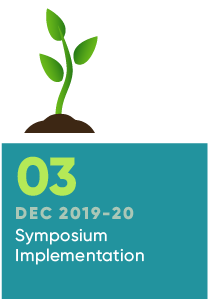 3. Symposium Implementation: December 2019–2020
3. Symposium Implementation: December 2019–2020
The Provost, Senate President, and Vice Provost for Faculty Affairs seated the committees with thirty six faculty members—welcoming expanded faculty leadership to implement Symposium initiatives, and communicating the charges for each committee’s yearlong work. Over the next year, committees selected, planted, and cultivated ideas seeded in the Symposium—creating new structures, resources, events, rhythms, and routines. Together, they transformed support and development for chairs and directors by creating a detailed handbook; developed new mentoring resources for faculty across series; and created new horizontal networks for chairs and directors with more feedback loops between these vital academic leaders and the provost’s office, to name but a few implementation efforts. Check out the Symposium site for timelines and additional details on these amazing faculty-led initiatives.
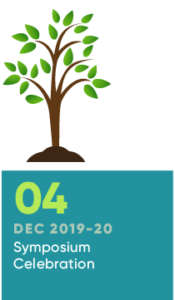 4. Symposium Celebration: January 2021
4. Symposium Celebration: January 2021
In January 2021, Provost Mary Clark hosted an all faculty presentation and celebration of the Symposium implementation efforts. Many of these efforts blossomed into vital institutional communication, education, and support networks during the pandemic—such as the chair advisory board and huddles, quarterly meetings with the Provost, chair and director huddles, and solution-seeking clinics. In many ways, these implementation efforts created a University-wide collective that served a vital role in navigating the emergent challenges of the pandemic together.
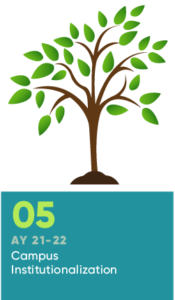 5. Symposium Institutionalization: 2021–2022
5. Symposium Institutionalization: 2021–2022
As we begin the 2021–2022 academic year, we acknowledge and celebrate the grassroots, faculty-led change initiatives and shared-governance processes that have blossomed into changes in climate, culture, and institution—improving how we work and how we train and support key academic leaders: our chairs and directors.
Here are some of the ways the seeds planted at the Symposium grew into implementation initiatives that are now part of an expanded ecosystem to create collaborative department cultures and climates:
- The Chair Advisory Board (CAB) welcomes new leadership and has set an annual schedule for chair huddles, quarterly meetings with the Provost, and solution-seeking clinics.
- The Mentoring and Onboarding Across Ranks and Series (MOARS) teaching and professional faculty team created a mentoring model to support teaching and professional faculty lifecycles—the first one we know of in the nation!
- The VPFA created a Faculty Fellow for Chair Development (applications still welcome) and Faculty Fellow for Mentoring to institutionalize new chair orientation and developmental opportunities for chairs and directors, and catalyze campus mentoring initiatives, which we know are vital for faculty success, belonging, and retention.
Look for more information in the coming months on the institutional outgrowths of these faculty-driven, campus-change efforts. I express my deep gratitude to all faculty who are, have been, or will take part in this transformation, and I thank the faculty senate for their partnership in this shared-governance initiative.

